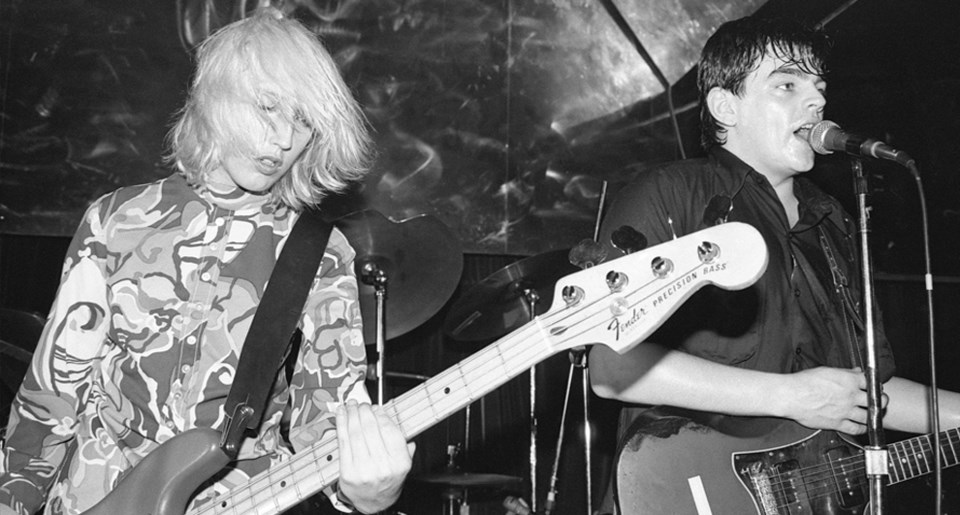For more than 75 years, the University of British Columbia’s CiTR 101.9 FM has been an abundant breeding ground for homegrown talent. The station, along with its sister publication Discorder, has been the platform for some of Vancouver’s finest since its formation in 1937: renowned writer and broadcaster Pierre Berton, Mint Records founders Randy Iwata and Bill Baker, Terry McBride of Nettwerk Records, Nardwuar the Human Serviette and many more have all paid their dues during their time at CiTR.
Last Friday, CiTR made it’s final broadcast from the old Student Union Building at UBC after 46 years. The following day, broadcasting began from their new home in UBC’s brand new Student Union Building, a state-of-the-art facility standing five storeys high with more than 230,000 square feet of space.
In true UBC fashion, CiTR rang in the changeover with a celebration, featuring live performances by TV Ugly and Sur Une Plage as well as guest alumni speakers and interviews. It is a new era for CiTR, one that will undoubtedly enrich an already vibrant local music scene.
“It’s going to be so much more pleasant to play here,” says Sarah Cordingley, CiTR’s music department manager and notable musician herself (Ace Martens, Channels 3x4). “It was a bit of an ordeal to load in to this tucked-away little dark, stuffy, awful place where we’d have to move all the couches to make way for [the bands],” she laughs.
The three new broadcast studios are “gorgeous”. The new SUB building itself is spacious, with a slick, modern design and a chasmal atrium that allows people to see into the station while shows are broadcast live.
“Now we’re in the middle. You cannot ignore us. You can see in the windows to all our studios and see who’s on the air,” says Cordingley. “It’s really exciting for visibility and [gives us more] options for live events.”
Live performances have always played a major role at the station, which is also releasing a cassette, the cleverly-titled CiTR 101.9 FM’s S.U.B. POP Compilation, to coincide with the move. It features past live performances by the likes of Julie Doiron (2010), The Hip Type (1987) and Cub (1992). Cordingley also promises “hilarious old ads and weirdness”, like ‘90s shoegazers, Movieland, whose member Justin Lee was at one point a music director at CiTR, doing an impromptu CiTR jingle in 1992 on Thunderbird Radio Hell, one of the station’s most beloved shows.
The compilation, mastered by longtime CiTR supporter and musician Jay Arner, mostly features material from the past 30 years. Naturally, it was no small feat putting it together.
“It was kind of tortuous, because most of the content was produced by students or people who are really new and just learning,” says Cordingley. “You’d come across the most amazing stuff, like The Modernettes live at the SUB Ballroom, but [you’d] just get the last song that was cut off at the end. Or one of the stereo channels is fuzzy and quiet and poorly balanced.”
Despite being a challenge to find decently produced content, the result is an amazing looking glass into the evolution of CiTR, from its more formal, stiff-collared days in the ‘60s, where the station chose to play primarily popular music; to the big switch to FM in the ‘80s, when CiTR became “more of a campus community model”, focusing on “niche music and underrepresented music.”
CiTR’s transition to its new home has not been without its challenges, however.
“It couldn’t be too perfect or it would just be weird!”
In addition to the music library not being big enough for the wealth of music CiTR has accumulated in its years, Cordingley has noticed a “disconnect” between UBC students and local music.
“Over the past four years that I’ve been here, I was shocked that university students just didn’t seem to like music. [But] I think that it’s turning around,” said Cordingley. “It’s such an engaging and flexible space that I think it’s going to be really positive for everyone involved, and a dream for musicians.”
Disconnect and delay aside, CiTR has opened a new chapter to its already eventful history: a newer, more visible presence on campus, better facilities to accommodate musicians, and “a marked improvement in our morale and the quality of our programming!” says Cordingley.
“It feels like an historic moment.”
• CiTR has a new address for those interested in submitting music. You can find all the info you need over at CiTR.ca


